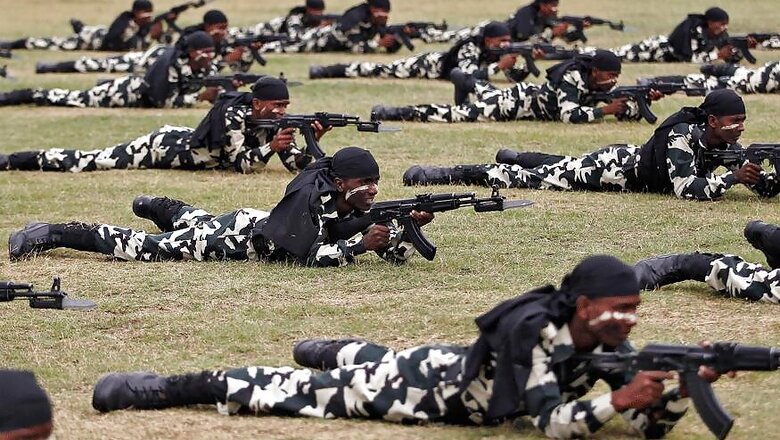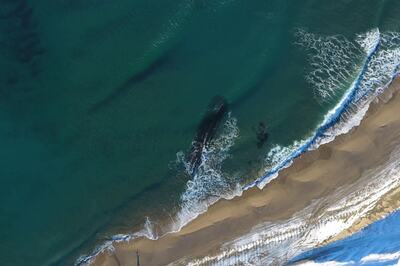
views
Bastar: On March 21, in the deadliest attack on Chhattisgarh police in the last five years, Naxals killed 17 jawans of police’s District Reserve Guards (DRG) unit. While the rest of the country was observing the one day Janta Curfew, announced by the prime minister, the families of the deceased soldiers were grieving.
Some families were angry over reports about soldiers not being equipped properly, while family members of some other deceased soldiers were eager to take the place of their loved ones in combat.
News18 spoke to members of three such families in a bid to understand their grief and with some serving jawans in DRG units to understand what life was like at the frontlines of fight with the red extremists.
One of the deceased jawans, Hemant Manikpuri, was the youngest of five siblings. He had joined the state police two years ago and after finishing his training was placed in a DRG squad. He was the only one among his siblings to be in government service, which is why he shouldered the emotional and financial burden of his entire family.
Hemant had called up his father at 4 o'clock in the evening of March 20th, hours before he left on a mission to flush out Naxals from their base. The state intelligence had picked up information about a major congregation of Naxals from nearby states like Telangana, meeting with the top brass of CPI (Maoist) in the jungles of Kassalpad.
Around 600 jawans from CRPF and state police were sent on the mission to flush out the Naxals. However, as reports suggest so far, it seems that the Naxals had the information about the huge counter-insurgency operation before hand. They instead laid a two-way ambush and trapped and killed 17 soldiers and injured many others. Manikpuri was among those who died fighting.
"He was planning to return home for a long holiday in April during which he was planning to get both his elder brothers married. Also he wanted to celebrate his 27th birthday, which was on April 2, at home, with us," his father said. Hours after that conversation with his father, he died in the ambush in the jungles of Kassalpad.
His father found out about the death of his son through news flashes on the television. Sukhandas said that he wasn't as angry about losing his son in a battle as much as he was on finding out that the soldiers who died in the line of duty did not have enough stock of bullets.
"If the jawans were not equipped with the necessary ammunition, why were they sent on such a dangerous mission," Sukhandas asks.
Family members of deceased jawan Libru Ram say that he had only one dream — to see his younger, 21-year-old sister getting married happily. To this end, he had been saving money for a long time, his wife said.
Ram was seven years old when his mother died. His uncle, who was a government teacher, took it upon himself to fund his education. Libru Ram studied well and cleared the state police examination.
Ram's wife is still finding it hard to come to terms with his death but, she says, the only way she can do justice to her husband's mission is by joining the DRG herself and fighting the Maoists.
Soyam Ramesh got into police services around 2005, the time of the launch of Salwa Judum campaign, in which the state armed local civilians to fight the Naxals, a move that proved counter-productive tactically and was challenged successfully in the Supreme Court. To augment his family's earnings, Ramesh was also looking at saving money to start farming on the small land his family owns.
His brother said that it was unfortunate that in this violence between state forces and Naxals, it was the local people who were suffering. He wished that both sides would call for a ceasefire and end this cycle of violence.
The DRG was established under Chhattisgarh Police Act in 2015. Locals, some of them surrendered Naxals, who knew the local terrain and understood Gondi, the local language, were selected for this counter-insurgency group. It was raised on the lines of a similar counter-insurgency force in Andhra Pradesh and Telangana called Greyhounds.
The force turned out to be hugely effective against the Naxals, since many of them left the CPI (Maoist) cadre themselves. These fighters understood well the ways of Naxals' guerilla warfare and had knowledge about their bases.
One of those who have risen through the ranks of DRG after successfully leading many counter-insurgency operations is unit commander Sanjay Potam. He was once a dreaded divisional commander of CPI (Maoist) until he surrendered before the state in 2013.
Badru was recruited in DRG as a constable first. After five back-to-back promotions, he is now an inspector in the state police. “Surely we have suffered a huge loss but this is the single biggest loss that DRG has suffered till now. So far, we have been greatly successful in eliminating some of the top Naxal commanders in operations that we launch almost on a regular basis. We don’t allow them to settle down,” Potam says.
He says that sometimes the operations they launch go on for days on end, since the units have to be on alert all the time and keep changing their routes so that they don’t fall into an ambush of the sorts that his colleagues fell into on March 21.
The group of jawans who died in combat on that day had spent the night and the following day in jungles without establishing contact with the Naxals. It was while they were returning to their camp, at around 2:30 in the afternoon that they were fired upon by Naxals who were waiting for them in an ambush.
“There are a lot of challenges, threat to the lives, since the combat can start any moment but we have our knowledge of the local terrain and some intelligence inputs to rely on. So mostly it is us who inflict the damage,” he adds.

















Comments
0 comment